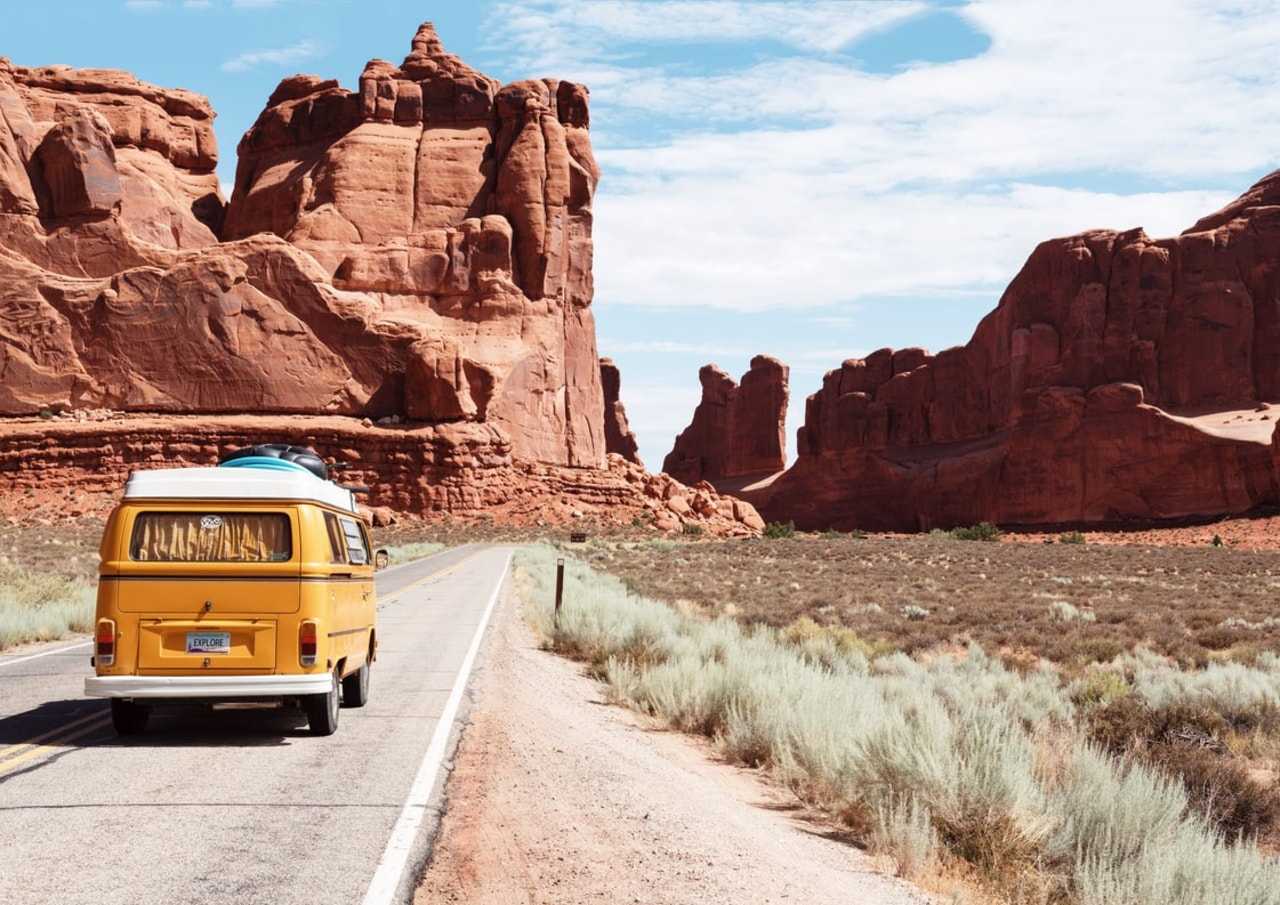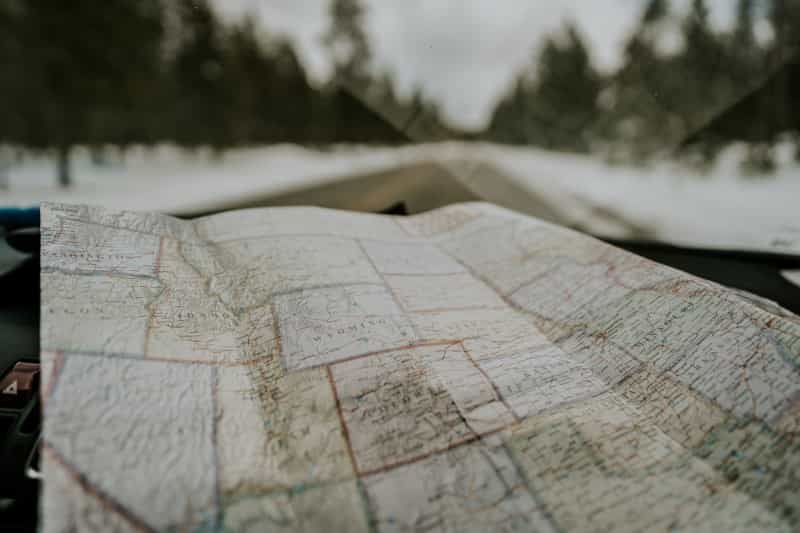Camping road trips
All the best road trips include camping. Expect evenings gathered around a blazing fire while chatting with other travellers and mornings spent with a hot cup of coffee and a spectacular view before heading off to explore more.

What type of camping can you do on a road trip?
Camping doesn’t just mean staying in a tent. You can take a motorhome, campervan or touring caravan out on the road for easy-access accommodation.
Alternatively, indulge in a little luxury at a glamping pod, lodge or yurt – perhaps with a hot tub to ease aching muscles after a day in the driver’s seat.
What to pack for a camping road trip
If you’re staying just one night in each destination, don’t bring a huge amount of equipment. You won’t want to set up a complicated camp each evening after a long day of driving.
Take a look at our full camping checklist before you head off on your adventure, then keep these road-trip must-haves in mind too.
-
A pop-up or inflatable tent for quicker setup.
-
A vacuum flask or Thermos to save time in the mornings by taking your tea or coffee on the road.
-
Plastic food containers so you can cook at the campsite in the evening and then pack your leftovers for lunch the next day.
-
A cool bag for the same reason – just make sure to look out for campsites with ice-pack-freezing facilities.
-
Quick-drying microfibre towels, so there will be no soggy towels to hang up in the car.
-
Comfy pillows to double up as back support in the vehicle during long days on the road.
-
Large water containers for refilling at each campsite, especially if you're going to be doing a day or so of wild camping in between staying at official sites.
-
Baby wipes for freshening up between campsite showers.
For the driving portion of your camping road trip, pack these essentials:
-
A paper map as a backup in case there’s no 4G signal.
-
A spare key in case yours gets lost.
-
A black plastic bag to hide your luggage from thieves when you leave the car.
-
Your car registration documents, driving licence, a copy of your car insurance and the car manual.
-
A road safety kit including jump cables, light sticks, a reflective vest, warning triangle, whistle and tyre pressure gauge.
-
A spare tyre and jack in case of punctures.
-
An in-car USB charger to power up your electronic devices.
-
A phone holder to keep your GPS within sight.

How to plan a great road trip
Road trips are popular because they offer so much freedom. But it’s still worth planning your holiday ahead of time to make sure it goes smoothly.
Think about what’s important for you. Would you prefer long drives where you soak up as much scenery as possible? Or shorter stints in the car and more time at the sights?
Once you’ve made your decision, follow these steps to plan the perfect road trip.
1. Pick your destination by browsing some of the best road trips featured on this page.
2. Consider how much money you'd like to spend.
– If you’re on a shoestring budget, non-electric tent pitches are the cheapest form of accommodation.
– Electric motorhome pitches at campsites with upscale facilities are more expensive but remain good value.
– Glamping is the priciest option yet still tends to be cheaper than staying at hotels.
3. Start planning your route and make a list of unmissable attractions and activities. Google Maps is great for figuring out approximate travel times and distances.
4. Organise your vehicle, travel documents and insurance. Look into driving rules if you’re heading abroad for your camping road trip.
There you have it: a quick guide to planning the ideal road trip. Now all you need to do is decide where to go…





